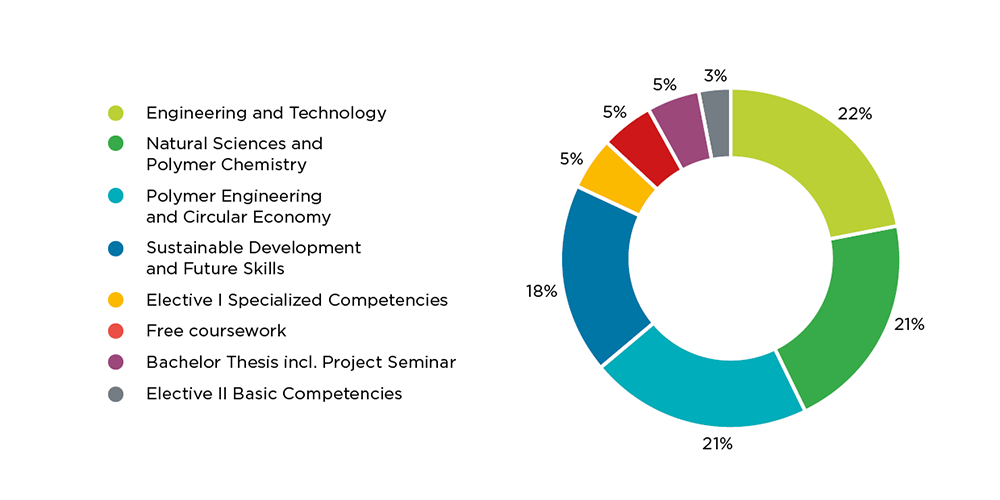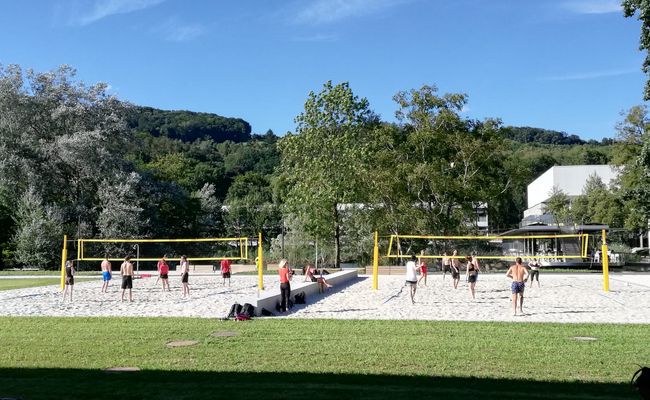Studies in sustainable polymer technologies and a circular economy are unique in Linz. Firstly, on account of its future-oriented direction and secondly, on account of the large number of faculties and institutes that integrate different disciplines. Alongside the engineering content, students learn about the connections between technology and business, as well as how technology impacts everyday life.
In addition, we take a more critical look at just how plastics impact the UN's Sustainable Development Goals (SDGs). We teach you about so-called "future skills", which will become increasingly important in the next five years not only career-wise, but socially as well. "Future skills" also include digitalization, life-cycle impact, and a perspective on society in terms of technical impact. These "future skills" prepare you to meet the challenges and job profiles in a VUCA world of the 21st century. VUCA is an acronym that refers to "volatility", "uncertainty", "complexity" and "ambiguity" and refers increasingly to our modern world.
A special feature of engineering studies in Linz is that the Faculty of Engineering & Natural Sciences is embedded in the general university, guaranteeing that your time as a student includes frequent interaction with other academic areas at the JKU as well as at the Med campus.






